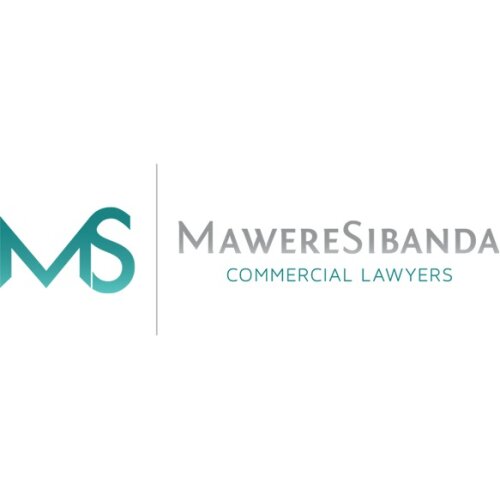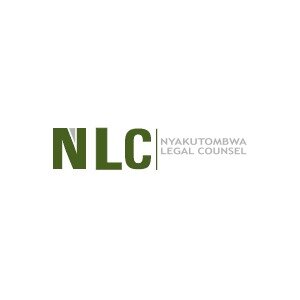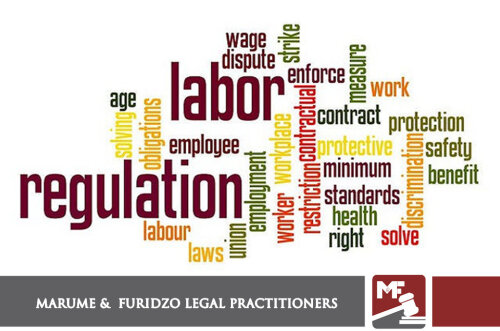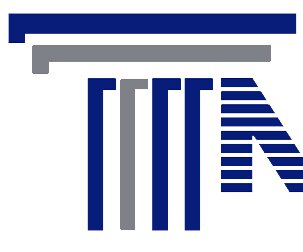Best Land Use & Zoning Lawyers in Harare
Share your needs with us, get contacted by law firms.
Free. Takes 2 min.
Free Guide to Hiring a Real Estate Lawyer
List of the best lawyers in Harare, Zimbabwe
About Land Use & Zoning Law in Harare, Zimbabwe
Land use and zoning laws in Harare are a vital part of the legal framework governing how land and properties are developed, utilized, and maintained. These laws help manage urban growth, ensure environmental sustainability, and maintain the character and functionality of different neighborhoods. In Harare, zoning regulations are designed to separate land uses that are seen as incompatible, allocate land for different public and private uses, and guide the city’s development in a structured way. This is facilitated through comprehensive planning carried out by the city planning authorities, which includes urban planning, rezoning, and administration of permits and licenses.
Why You May Need a Lawyer
There are several common situations where legal help may be necessary concerning land use and zoning in Harare:
- Property Development: Whether you are a developer or a private individual considering development, understanding zoning laws is crucial to ensure compliance and avoid legal issues.
- Rezoning Applications: If you wish to change the zoning classification of your property, you will need to navigate complex regulatory processes.
- Land Disputes: Disputes over land use with neighbors or authorities can arise, requiring legal intervention to resolve.
- Compliance Issues: Failure to comply with zoning laws can result in fines or forced alterations to your property, necessitating legal advice and representation.
- Commercial Developments: Businesses must ensure their operations comply with local zoning regulations, especially when expanding or renovating.
Local Laws Overview
In Harare, land use and zoning regulations are primarily governed by the Regional, Town and Country Planning Act. Key aspects include:
- Zoning Classifications: Residential, commercial, industrial, and agricultural zoning classifications dictate the permissible uses of parcels of land.
- Development Control: This involves permits and approvals required for construction or major alterations to structures.
- Environmental Considerations: Zoning laws include provisions to protect environmental assets, which can restrict certain types of developments.
- Community Input: Public participation is often a component of zoning decisions to incorporate community views and concerns.
Frequently Asked Questions
What is zoning?
Zoning refers to the process of dividing land into zones for different purposes such as residential, commercial, industrial, and agricultural use. It dictates how property in these zones can be used.
How do I find out the zoning classification of my property?
The zoning classification of your property can be obtained from the City of Harare’s Department of Urban Planning or through consulting the city’s official zoning maps.
Can I change the zoning of my property?
To change the zoning of your property, you must apply for rezoning with the local planning authority, present your case, and comply with all procedural requirements.
What should I do if I receive a zoning violation notice?
If you receive a zoning violation notice, it is advisable to consult with a lawyer who specializes in land use and zoning law to understand your options and correct the issue if necessary.
Are there any penalties for non-compliance with zoning laws?
Yes, non-compliance with zoning laws can result in fines, lawsuits, and potentially the demolition or alteration of unauthorized structures.
What is a variance in zoning terms?
A variance is a request to deviate from current zoning requirements. If granted, it allows the landowner to use the land in a way that is not typically permitted by the zoning ordinance.
How can zoning laws affect my business?
Zoning laws can affect where your business is located, how it operates, its hours, signage, and the nature of modifications you can make to your premises.
What is the role of public hearings in the zoning process?
Public hearings allow community members to share their opinions on proposed projects and zoning changes before final decisions are made by the authorities.
Is there an appeal process if a zoning application is denied?
Yes, there is usually an appeal process available if your application for zoning changes or permits is denied, which typically involves presenting your case to a zoning board or committee.
Can zoning laws be challenged in court?
While challenging zoning laws in court is possible, it can be a complex and lengthy legal process requiring expert legal representation.
Additional Resources
Here are some resources that can provide further guidance and information on land use and zoning in Harare:
- The City of Harare Urban Planning Division: Offers official zoning maps and guidelines.
- The Ministry of Local Government, Public Works and National Housing: Provides overarching policy and legislation.
- Local Law Firms: Specializing in land use and zoning law for personalized advice and legal representation.
- The Zimbabwe Institute of Regional and Urban Planners: Offers insights and developments in urban planning.
Next Steps
If you are seeking legal assistance in land use and zoning matters in Harare, consider the following steps:
- Research and gather information about your specific issue or concern.
- Consult a lawyer with expertise in Zimbabwe’s land use and zoning laws.
- Contact relevant government offices to gain access to zoning maps and records.
- Prepare all necessary documentation, such as applications for permits or rezoning, to streamline the legal process.
Seeking expert legal guidance can help you navigate the complexities of land use and zoning regulations efficiently.
Lawzana helps you find the best lawyers and law firms in Harare through a curated and pre-screened list of qualified legal professionals. Our platform offers rankings and detailed profiles of attorneys and law firms, allowing you to compare based on practice areas, including Land Use & Zoning, experience, and client feedback.
Each profile includes a description of the firm's areas of practice, client reviews, team members and partners, year of establishment, spoken languages, office locations, contact information, social media presence, and any published articles or resources. Most firms on our platform speak English and are experienced in both local and international legal matters.
Get a quote from top-rated law firms in Harare, Zimbabwe — quickly, securely, and without unnecessary hassle.
Disclaimer:
The information provided on this page is for general informational purposes only and does not constitute legal advice. While we strive to ensure the accuracy and relevance of the content, legal information may change over time, and interpretations of the law can vary. You should always consult with a qualified legal professional for advice specific to your situation.
We disclaim all liability for actions taken or not taken based on the content of this page. If you believe any information is incorrect or outdated, please contact us, and we will review and update it where appropriate.















